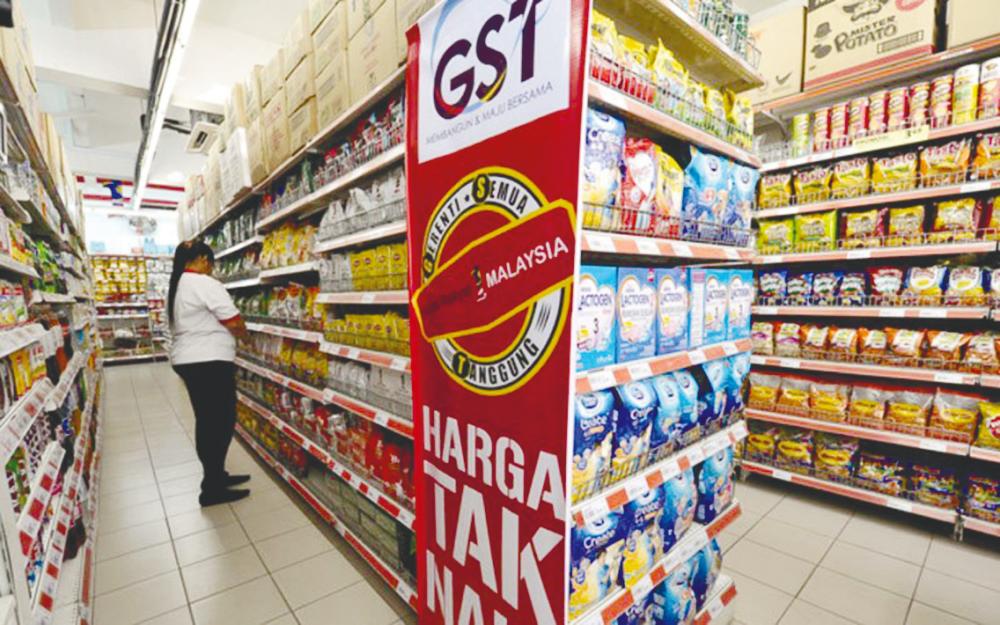PETALING JAYA: There is speculation that if the Barisan National (BN) wins the coming 15th general election, it will spell the return of the Goods and Services Tax (GST), spurred by the need to expand the government’s revenue in light of support and development spending aimed at curtailing the impact of the Covid-19 pandemic on the Malaysian economy.
GST was introduced by the BN government on April 1, 2015, but Pakatan Harapan replaced it with the Sales and Service Tax (SST) on Sept 1, 2018, after it came to power.
When GST was in force, it brought in an average of RM42.7 billion a year in revenue in 2016 and 2017, accounting for nearly 20% of the country’s annual revenue. In contrast the current Sales and Services Tax (SST) regime contributed RM27.9 billion in 2021.
Thannees Tax Consulting Services Sdn Bhd managing director SM Thanneermalai said the challenge in the reintroduction of GST is in ensuring that existing legacy issues, especially refunds, do not continue.
Even though the consumption tax was abolished nearly four years ago, he said, the Royal Malaysian Customs Department is still holding on to some refunds.
Thanneermalai related that, in some cases, Customs has required an audit as a condition for refunds and has withheld refunds if it is deemed not satisfactory.
“For the reintroduction of GST, the government should at least give one year to allow businesses to prepare,” Thanneermalai told SunBiz.
He noted that it is uncertain whether the software required for GST is still readily available.
“Furthermore, the authorities should be clear which items are zero rated or exempted and the government should be careful to ensure the rate won’t have an inflationary effect. The government should ensure the basic necessities are zero rated so it will not burden the rakyat.”
For the reintroduction, Thanneermalai believes the GST would be set at 6% as a lower rate would not translate into a significantly higher revenue collection.
Another issue he found with GST’s initial iteration was the amount of discretionary powers granted to the Customs deputy general.
Thanneermalai said the previous implementation of the broad-based tax was done haphazardly, as there were a lot of discretionary powers vested in the Customs Department.
He recalled that there were a lot of changes in relation to the implementation of GST back then, and these would be passed down through guides issued every few months.
“Moving forward, the implementation of the GST has to be powered by legislation and there is a need to have a dialogue with businesses to hear them out before doing so.”
Similarly, TraTax tax adviser Thenesh Kannaa believes it is vital for policymakers to engage industries and consumers in meaningful ways before the reintroduction.
“A theoretical return of the tax will still require education, systems to be revived and updated as well as a pilot run before a reintroduction,” he said.
In addressing issues relating to refunds, Thenesh noted that it is a multi-stage tax, in which many businesses are entitled to input tax credits, and many are in a position to seek refunds.
“Hence, it is important to ensure that not all money collected is credited into the Federal Consolidated Fund. Instead, an allowance for refund should be made for every ringgit of tax collected, and only the net amount should be credited into the fund.”
He said such an approach is vital for Customs to operate autonomously and to ensure businesses are refunded on a timely basis.














